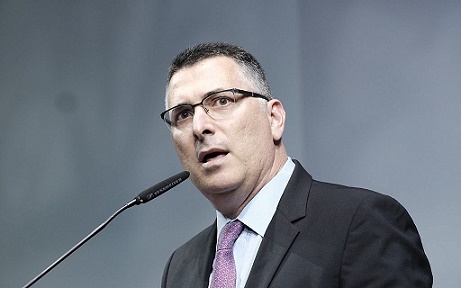Saudi Arabia and IMF's Initiative for Mideast Recovery
Discover the concerted international efforts led by Saudi Arabia and the IMF aimed at addressing the persistent challenges faced by conflict-affected economies in the Middle East.
Published February 18, 2025 - 00:02am

Image recovered from arabnews.com
In an effort to address the ongoing economic challenges in the conflict-affected regions of the Middle East, Saudi Arabia and the International Monetary Fund (IMF) have embarked on a collaborative initiative. The finance ministers of the region, representatives from the World Bank, and members of the Arab Coordination Group gathered to discuss strategies for economic recovery, with a significant focus on the Syrian Arab Republic.
Held on the fringes of the AlUla Conference for Emerging Market Economies, this high-level roundtable underscored the broader implications of prolonged instability in the region. It highlighted the urgency of aligning international efforts to initiate comprehensive recovery strategies. Recognizing the complex socio-economic landscape of countries like Syria, the participants identified three core priorities that would direct their efforts towards rebuilding the affected nations.
Firstly, a continuous diagnostic procedure was proposed to assess each country's unique challenges. This step is expected to identify specific institutional gaps and economic policy needs while addressing the humanitarian requirements. By establishing a clear understanding of the financial and policy landscapes, the stakeholders aim to strategize targeted interventions for effective recovery and stabilization.
Secondly, the meeting emphasized the need for enhanced capacity development. With a special focus on fiscal, monetary, and banking institutions, initiatives by the IMF and World Bank will be scaled up to ensure that local institutions are equipped to handle existing and emerging challenges. This development is crucial for laying a stable foundation for long-term economic growth and stability in these conflict-ridden areas.
Thirdly, the mobilization of international financial assistance was underscored as a vital component of the recovery process. Coordinated support from global and regional development partners will play a critical role in reconstructing these economies. Emphasis was placed on ensuring that financial aid aligns with comprehensive reform programs and humanitarian needs, thereby fostering environments that can support sustainable development.
The establishment of an informal coordination group was also ratified, ensuring oversight and monitoring of ongoing initiatives. This agreement marks a significant step towards a more organized approach in addressing regional recovery issues, promising a concerted effort among participating countries and institutions.
The forthcoming IMF/World Bank Spring Meetings in Washington offer further opportunity for dialogue and planning. These discussions are expected to refine strategies and action plans, reinforcing commitments from international partners to provide consistent support.
This initiative not only marks a significant step in international diplomacy and cooperation but also emphasizes the growing recognition of the interconnectedness between peace and economic prosperity. By aligning resources and efforts, the stakeholders hope to create sustainable paths to stability for the people affected by years of conflict.
The meeting was attended by notable figures, including Syrian officials and international financial leaders, showcasing a united front in tackling one of the region's most pressing issues. The outcomes of this meeting suggest a promising future for regional cooperation, highlighting the potential for meaningful change when nations and financial institutions unite towards a common goal.






